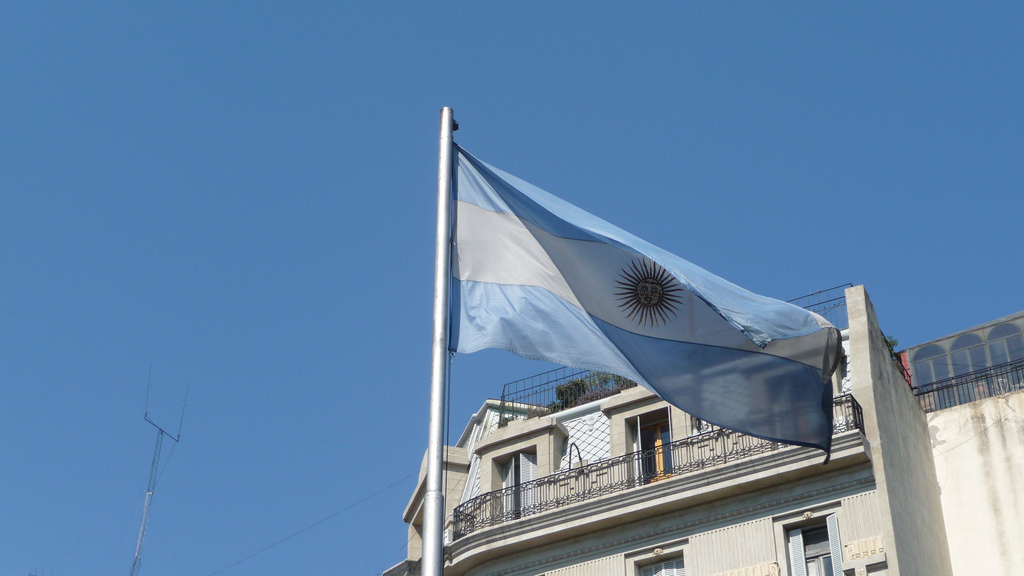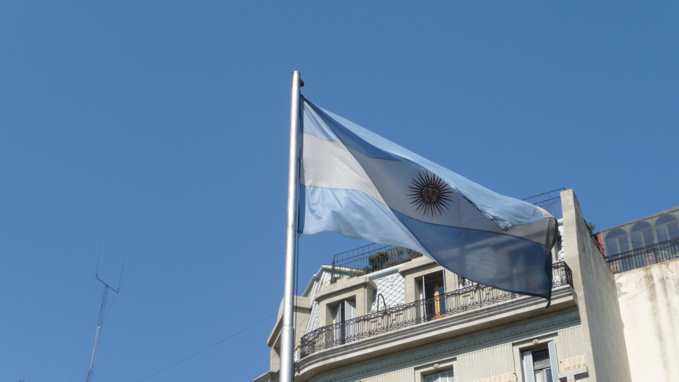On Thursday night, the IMF Board of Governors approved a three-year program of financial assistance to Argentina. The country will receive a loan in the amount of up to $ 50 billion, which is 1110% of its quota in the fund's capital. The first tranche will amount to $ 15 billion. Half of these funds will be spent to support the budget, the remaining $ 35 billion will be available to the Argentine authorities in case of successful quarterly evaluations of the program conditions. Yet, the government have already said that they plan to use only the first tranche, while the rest will become a kind of airbag.
Recall, President Mauricio Macri addressed the IMF in early May amid a sharp outflow of capital and a weakening of the national currency, the peso, which has lost more than 35% of the value since the beginning of the year. Among the causes of the crisis were named reduction in foreign exchange earnings from exports on the background of a drought, an increase in the cost of imported fuel, and the strengthening of the US dollar against the backdrop of a tightening of monetary policy in the United States.
Before that, the country had already received support from the IMF, including at the time of the debt crisis of 2001-2002, when Argentina defaulted. At that time, the national debt was $ 132 billion, the write-off affected about 70% of liabilities. 92% of state securities holders agreed, and the country has been litigating with the rest of the holders for 15 years, eventually paying an additional $ 4.65 billion.
In 2006, when Argentina got even with the IMF, contacts with the fund were suspended. Its experts were accused of worsening the country's creditworthiness before default, in particular, by keeping the peso-dollar exchange rate fixed.
However, the country has been carrying out economic reforms, in particular, aimed at liberalizing exchange rate policy over the past two and a half years.
The program’s main goal is to restore investor confidence, the fund says. For this purpose, it is planned to reduce the budget deficit from 6% last year to 2.9% in 2021, reaching the primary surplus (before payments on debts) by 2020. The level of public debt is planned to be reduced from 64.5% of GDP in 2018 to 55.8% of GDP in 2021. The second block of program conditions concerns reduction of the inflation rate from the expected maximum of 27% this year (24.8% in the past) to 9% by the end of 2021.
At the same time, the Argentine side promised to adhere to a flexible exchange rate, increase reserves and limit the amount of currency interventions during periods of strong fluctuations in the market. The fund also demands that the government's direct and indirect financing of the government cease to be financed.
It is assumed that implementation of the plan will accelerate GDP growth from 0.4% this year, to 3.1% in 2021. At the same time, the country should return to the positive balance of trade this year, in subsequent years the growth rate of exports should significantly exceed the increase in imports. In turn, a sharp decline in investment volume associated with a reduction in government spending should be replaced by a rapid increase in capital investments after the end of the program, the IMF expects. However, as Capital Economics noted, maintaining a high level of inflation may continue to put pressure on the peso, despite the measures of financial stabilization.
source: reuters.com
Recall, President Mauricio Macri addressed the IMF in early May amid a sharp outflow of capital and a weakening of the national currency, the peso, which has lost more than 35% of the value since the beginning of the year. Among the causes of the crisis were named reduction in foreign exchange earnings from exports on the background of a drought, an increase in the cost of imported fuel, and the strengthening of the US dollar against the backdrop of a tightening of monetary policy in the United States.
Before that, the country had already received support from the IMF, including at the time of the debt crisis of 2001-2002, when Argentina defaulted. At that time, the national debt was $ 132 billion, the write-off affected about 70% of liabilities. 92% of state securities holders agreed, and the country has been litigating with the rest of the holders for 15 years, eventually paying an additional $ 4.65 billion.
In 2006, when Argentina got even with the IMF, contacts with the fund were suspended. Its experts were accused of worsening the country's creditworthiness before default, in particular, by keeping the peso-dollar exchange rate fixed.
However, the country has been carrying out economic reforms, in particular, aimed at liberalizing exchange rate policy over the past two and a half years.
The program’s main goal is to restore investor confidence, the fund says. For this purpose, it is planned to reduce the budget deficit from 6% last year to 2.9% in 2021, reaching the primary surplus (before payments on debts) by 2020. The level of public debt is planned to be reduced from 64.5% of GDP in 2018 to 55.8% of GDP in 2021. The second block of program conditions concerns reduction of the inflation rate from the expected maximum of 27% this year (24.8% in the past) to 9% by the end of 2021.
At the same time, the Argentine side promised to adhere to a flexible exchange rate, increase reserves and limit the amount of currency interventions during periods of strong fluctuations in the market. The fund also demands that the government's direct and indirect financing of the government cease to be financed.
It is assumed that implementation of the plan will accelerate GDP growth from 0.4% this year, to 3.1% in 2021. At the same time, the country should return to the positive balance of trade this year, in subsequent years the growth rate of exports should significantly exceed the increase in imports. In turn, a sharp decline in investment volume associated with a reduction in government spending should be replaced by a rapid increase in capital investments after the end of the program, the IMF expects. However, as Capital Economics noted, maintaining a high level of inflation may continue to put pressure on the peso, despite the measures of financial stabilization.
source: reuters.com



















